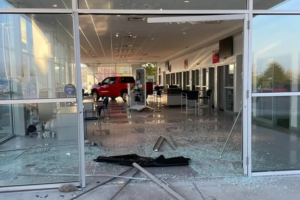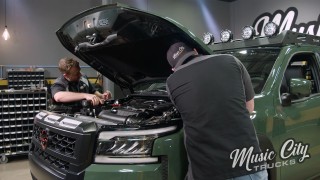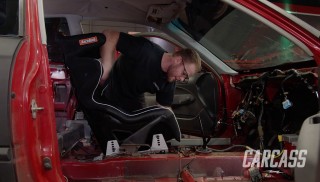CDK Global Cyberattack Causes Major Disruptions Across About 15,000 Car Dealerships

Table of Contents
The recent cyberattack on CDK Global, a key software provider for car dealerships, has caused major disruptions across about 15,000 dealerships in the U.S. and Canada. This attack has affected sales, service, and registration processes, forcing dealerships to revert to manual systems and leading to widespread delays and financial losses.
Impact on Car Dealership Operations
The cyberattack has paralyzed CDK Global’s systems, profoundly affecting dealership operations nationwide. Ryan Callahan, general sales manager at a Mazda dealership in Seekonk, Massachusetts, expressed concerns over the enduring financial impact, emphasizing, “The financial repercussions will likely take months, if not years, to rectify.”
Dealerships heavily rely on their software for essential tasks such as vehicle registration with state motor vehicle departments. Michael Deveney, owner of Midway Automotive in Massachusetts, noted the impracticality of redirecting customers to local RMV offices for manual registrations, exacerbated by the RMV’s suspension of walk-in services due to overwhelming demand.
In Lynn, Massachusetts, Katelyn Salvato, a title clerk at Pride Motor Group, highlighted substantial delays in vehicle registrations, noting, “I processed 21 registrations manually at the Massachusetts RMV,” underscoring the extended wait times faced by customers.

Challenges in Sales and Service Due to Cyberattack
Sales and service staff across various dealerships have resorted to manual methods, causing significant delays and frustrations. Scott Campbell, a salesman at Capital City Buick GMC in Berlin, Vermont, estimated that transaction times for purchasing vehicles have doubled or even tripled. Nicolas, a parts department clerk at a Porsche dealership in Los Angeles, described the meticulous process of using pen and paper, Excel spreadsheets, and increased attention to detail for each invoice during the outage.
Customer Delays and Frustrations
Customers have also experienced substantial delays. Don Aycock from Florida recounted driving 90 miles round-trip to purchase a new Buick, only to face delays in signing the title due to system issues. “We were informed today that we can return next Thursday to complete the paperwork and obtain a permanent license plate,” he remarked, preparing for another lengthy journey.
In San Diego, amidst temperatures nearing 90 degrees, Robbie Jacob and his wife encountered challenges scheduling an appointment at a Kia service center to repair their car’s air conditioning unit. The center cited the cyber incident for the inability to service the vehicle immediately, suspending all appointments and walk-ins until the following week.
Industry Response and Future Outlook after CDK Incident
In response to the CDK Global incident, several software providers, including Cox Automotive and Tekion, have adjusted operations to support affected dealerships. However, many dealerships locked into long-term contracts with CDK face hurdles in transitioning to alternative systems. Major dealership groups like AutoNation, Group 1 Automotive, and Lithia Motors have already reported financial setbacks and operational disruptions for the second quarter.
An intelligence analyst identified BlackSuit, a hacking group based in Eastern Europe, as the likely perpetrator of the attack. While the tech company works on system restoration, it has encountered setbacks, including a second cyberattack and ransom demands amounting to tens of millions of dollars.

Despite challenges, CDK Global has made progress by bringing a small test group of dealers back online with their Dealer Management System (DMS). This phased approach aims to validate operations before expanding further and restoring additional applications like CRM and service solutions.
Navigating Recovery
The CDK Global cyberattack underscores vulnerabilities in critical automotive retail infrastructure. As dealerships navigate this crisis, the importance of robust cybersecurity measures and effective contingency plans has never been clearer. While recovery may be protracted, the industry’s resilience and adaptability will play pivotal roles in overcoming challenges and restoring normal operations.









